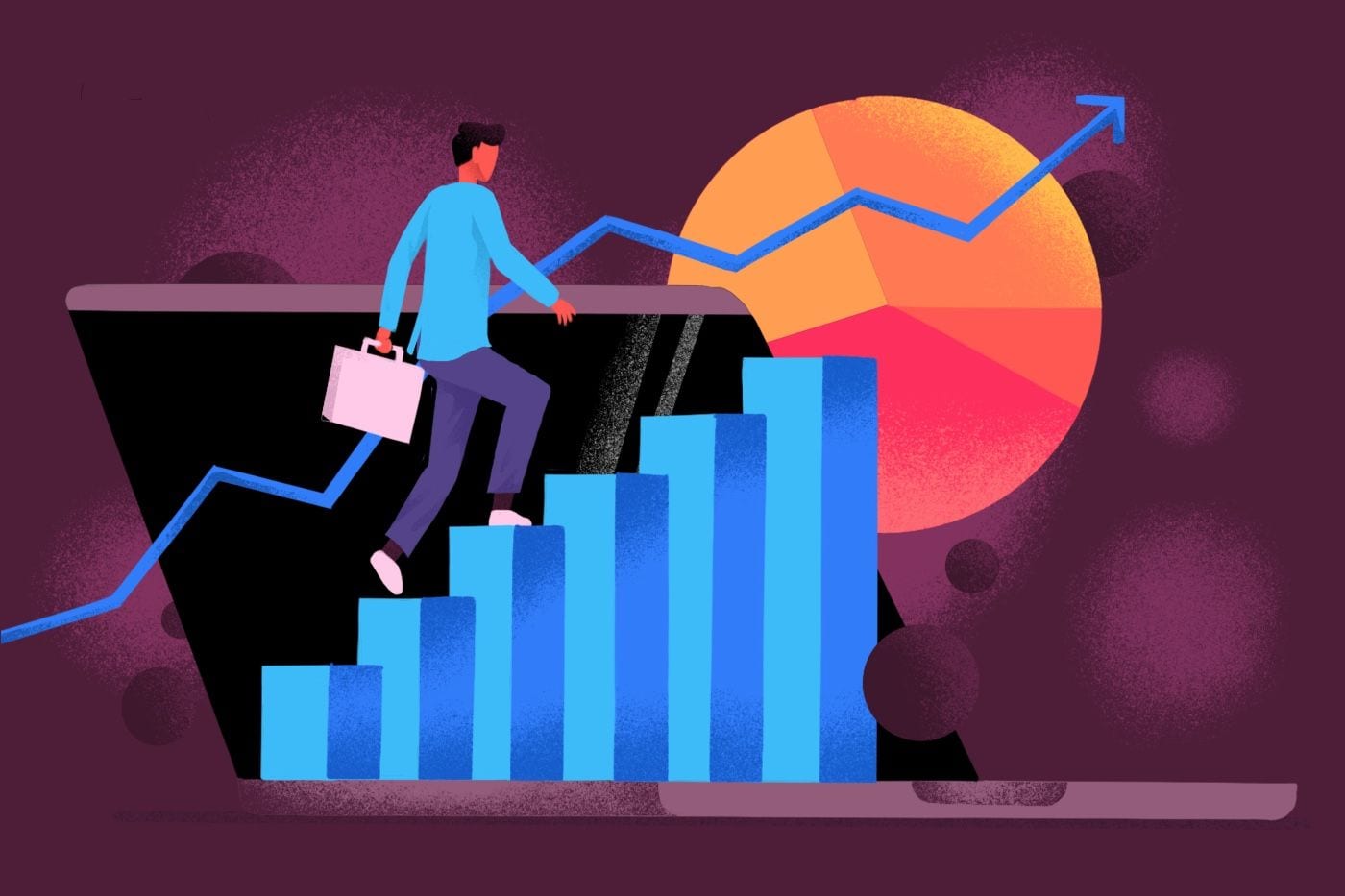What to Expect After Hiring a Digital Marketing Agency
Just like any new relationship, the first 90 days with a digital marketing agency can feel like they’re moving way too fast or way too slow. But that doesn’t have to be uncomfortable.
While there’s no such thing as an effortless onboarding process, you can take steps to set yourself up for success. It’s all about embracing the chaotic nature of unique personalities and backgrounds coming together — while being practical about what you can predict. Let’s dig in and prep you for the best relationship ever.

Getting started with a digital marketing agency
There’s no honeymoon phase at the beginning of a digital marketing engagement. Honeymooners already did the hard work of getting to know each other. We’re at the awkward second date phase. We haven’t quite mastered communication yet.
At this stage, expect some back and forth as communication styles fall into place. (In)famously, I bobbled a client conversion during this tenuous 90 day period by using the word “sucks” to a client who wasn’t on board with that kind of language. The faux-pas comes up quite often in good-natured ribbing — a reminder that we’re all individuals connecting as best we can.
Ultimately, this isn’t a date. It’s your investment. It’s your future and your business. We take that seriously, and any marketing agency should.
Your agency will most likely expect a few things from you. Even if they don’t expect it, being prepared will help the relationship run smoothly.
Raise your hand
If you have questions, ask them. Marketers and specialists are deep in their world. They’re just as anxious to get rolling, and they’re brimming with ideas. That sometimes means that they forget to slow down and make sure you understand what they’re excitedly sharing. To further complicate things, every agency has its own processes. Even if you’ve had extensive experience working with digital marketing agencies, you may be exposed to new ways of doing things.
There truly are no dumb questions. Never be afraid to raise your hand and ask how your agency approaches a specific process, or what an acronym means, or what the timeline will look like.
Why? Questions facilitate not only answers, but momentum toward your shared goals.
Speak your mind
The most successful partnerships involve open, clear communication. That means giving constructive criticism early and often. There’s no room for ego or hurt feelings in marketing. So don’t worry about what your agency contact is going to feel.
It’s much better to course-correct early on than to realize you could have improved your service or communication months before. A good agency will facilitate back and forth dialogue that may involve sharing constructive criticism with you, too. A great agency might buy you a beer afterwards.
Why? Your perspective will help shape a fruitful, mutually respectful partnership.
Learn how — and when — to give feedback
Pretty early on in your relationship, you’ll be asked to give feedback or approval on deliverables. No matter how confident or experienced your agency is, this is when they’ll be holding their breath wondering how things are going to go. It isn’t because they don’t believe in their work, it’s because the feedback process can be bumpy at best — and disastrous at first.
The best way to navigate potential friction is to clearly define what feedback should look like. That’s on your agency. Your role is to try to be open to the parameters you’re given. Sometimes your favorite color will matter. Oftentimes it won’t. On the other hand, your relationship with your clients should never be compromised by your agency’s work.
Why? Developing a healthy feedback cycle will keep digital marketing projects on time and on budget.
Know where you’ve been
In order to be successful, your agency needs to know how things have been going so far. Be prepared to pull together the data or the people required to give an accurate, detailed picture of how your business and marketing have been running up until now.
You should have a good sense of what’s worked in the past and what hasn’t worked. Your agency will want to dive into how your sales team aligns with your marketing efforts and how you’ve measured success. This is not a “less is more” situation. Most agencies will be happy with you sharing everything you have, from analytics access to documentation of previous marketing strategies.
Why? A detailed understanding of the past will help drive a more successful future.
Know what you want to achieve
Powerful digital marketing relationships are built on mutually-agreed-upon goals. At Big Sea, we define goals early on, and we return to them often. Your agency should have a strong understanding of where you want to be next year — and many years down the road. So be prepared to speak to these topics early on in your marketing engagement.
Here Are 7 Reasons Not to Hire a Digital Marketing Agency >>
Goal setting is a collaborative process. Some goals are explicit, such as a specific number of leads or a specific revenue goal. But you should also be prepared to share your overall business goals, such as growing your team, opening new locations, or developing new lines of service. Marketing can and should support you in all areas of growth.
Why? Agreeing on goals — and the definition of success — will align expectations early on.
But when does the work actually start?
Meaningful marketing can’t happen without research and discovery, but research and discovery can feel like inertia when you’re eager to see what you came for — results.
Capitalizing on quick wins
During the research and discovery phase, your agency will look for quick wins. These are often in the form of improvements on your existing efforts. For example, conversion rate optimization on your landing pages can have a quick impact as long as your landing pages are getting enough traffic. Email marketing is another opportunity to see faster results. If you have an existing list, your agency can quickly work on segmenting and improving email messaging. Paid media campaigns such as display advertising and search engine marketing can ramp up quickly.
Laying the groundwork for long-term results
When it comes to content marketing, your agency will likely work closely with you to begin developing content right away. But this is a longer game (and one that pays off for a longer time). Depending on the strategy, this could involve growing your website, developing educational offerings to your prospects, or developing a new communication channel like a blog or video series. It might involve all of these things!
Expect to see your marketing system grow much like a house being built, from the laying of the foundation, to the structure and roof, all the way down to the little details that make something special to consumers. You’ll likely see unfinished work, which means adjusting to giving feedback on early iterations. While trust is paramount here, that doesn’t mean you should consider yourself a helpless bystander. Share your gut reactions and your needs at every step. Be open to feedback (and pushback) with the understanding that everyone is aligned around your goals.
Establishing a routine
It typically takes about three months to establish a routine and a communication cadence. By then, you should have a strategy in place that dictates what the next few months should look like, you should have some deliverables in hand, and some should already be out there in front of your prospective customers. Your agency will have a system of reporting to you and checking in regularly, and will expect you to be able to attend regular meetings and calls to keep you engaged and informed.
Routine doesn’t mean rut.
Expect agility as your marketing relationship progresses. You hired an agency because you value creativity and strategy, but creativity is risky. Trust your agency to take calculated risks, measure the outcomes, and pivot (or double down) based on the results of creative tests.
Meaningful digital marketing is a mix of quick, clever wins, and long-term strategies that set you up for future success.
Whew!

